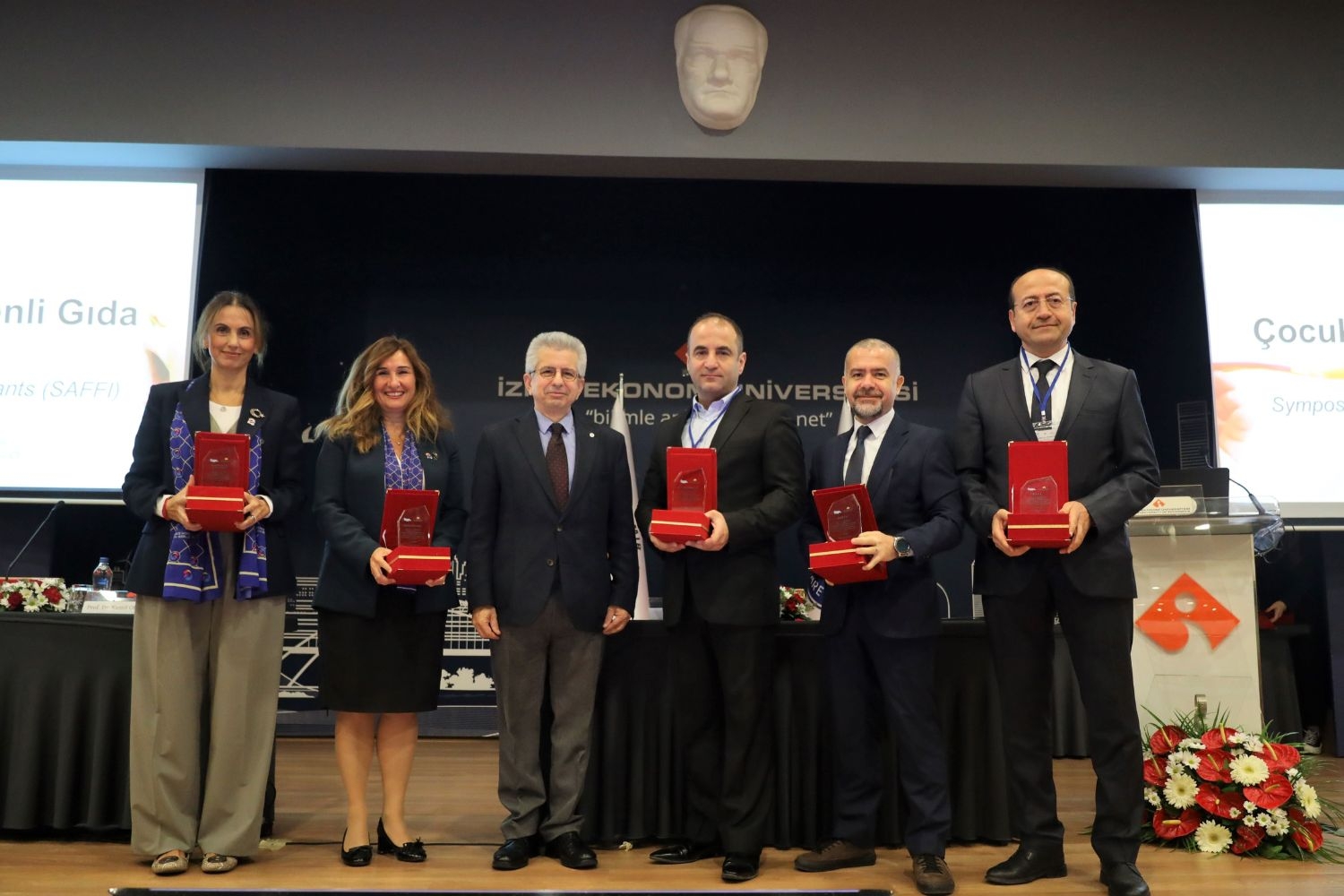
...

...
VOCATIONAL SCHOOL OF HEALTH SERVICES
Department of Child Development| Course Name |
Critical Thinking
|
|
Code
|
Semester
|
Theory
(hour/week) |
Application/Lab
(hour/week) |
Local Credits
|
ECTS
|
|
TS 221
|
Fall/Spring
|
2
|
0
|
2
|
3
|
| Prerequisites |
None
|
|||||
| Course Language |
Turkish
|
|||||
| Course Type |
Elective
|
|||||
| Course Level |
Short Cycle
|
|||||
| Mode of Delivery | - | |||||
| Teaching Methods and Techniques of the Course | DiscussionCase StudyCritical feedbackLecture / Presentation | |||||
| National Occupation Classification | - | |||||
| Course Coordinator | - | |||||
| Course Lecturer(s) | - | |||||
| Assistant(s) | - | |||||
| Course Objectives | The aim of this course is to provide students with critical thinking skills. |
| Learning Outcomes |
The students who succeeded in this course;
|
| Course Description | This course covers critical thinking, dimentions of critical thinking, affective and cognitive dimentions of critical thinking strategies. |
| Related Sustainable Development Goals |
|
|
|
Core Courses | |
| Major Area Courses | ||
| Supportive Courses | ||
| Media and Management Skills Courses | ||
| Transferable Skill Courses |
| Week | Subjects | Related Preparation |
| 1 | Intoduction to course and critical thinking | |
| 2 | Why critical thinking is important? | Paul Richard, Elder Lında, Kritik Düşünce, (2013) Ankara: Nobel Yayıncılık. Giriş: xxi-xxxiv |
| 3 | Dimentions of critical thinking | Paul Richard, Elder Lında, Kritik Düşünce, (2013) Ankara: Nobel Yayıncılık. Ss. 57-90 |
| 4 | Standarts of Critical Thinking | Paul Richard, Elder Lında, Kritik Düşünce, (2013) Ankara: Nobel Yayıncılık. Ss. 91-122 |
| 5 | Ask questions to direct critical thinking | Paul Richard, Elder Lında, Kritik Düşünce, (2013) Ankara: Nobel Yayıncılık. Ss. 123-151 |
| 6 | Components of Thinking | Paul Richard, Elder Lında, Kritik Düşünce, (2013) Ankara: Nobel Yayıncılık. ss. 153-186 |
| 7 | Problem solving | Paul Richard, Elder Lında, Kritik Düşünce, (2013) Ankara: Nobel Yayıncılık. Ss. 197-222 |
| 8 | Midterm Exam | |
| 9 | Critical reading Critical listening | Aytan, Necmi, Yaratıcı Okuma, (2015), Ankara: Nobel Yayıncılık. Ss 25-70 |
| 10 | Logical thinking and illogical thinking | Paul Richard, Elder Lında, Kritik Düşünce, (2013) Ankara: Nobel Yayıncılık. Ss.223-260 |
| 11 | Strategic Thinking I | Paul Richard, Elder Lında, Kritik Düşünce, (2013) Ankara: Nobel Yayıncılık. Ss. 367-381 |
| 12 | Strategic Thinking II | Paul Richard, Elder Lında, Kritik Düşünce, (2013) Ankara: Nobel Yayıncılık, ss.383-399 |
| 13 | Sample cases, discussion | Aytan, Necmi, Yaratıcı Okuma, (2015), Ankara: Nobel Yayıncılık. Ss. 99-129 |
| 14 | Sample cases, discussion | Aytan, Necmi, Yaratıcı Okuma, (2015), Ankara: Nobel Yayıncılık. Ss. 99-129 |
| 15 | Review – General discussion | The textbooks referenced below and course slides |
| 16 | Final |
| Course Notes/Textbooks | Paul Richard, Elder Linda, Kritik Düşünce, (2013) Ankara: Nobel Yayıncılık. ISBN: 9786051335759 Aytan, Necmi, Yaratıcı Okuma, (2015), Ankara: Nobel Yayıncılık ISBN: 9786053201175 |
| Suggested Readings/Materials | 1. S. Sadi SEFEROGLU. CenkAKBIYIK / H.Ü. Eğitim Fakültesi Dergisi (H.U. Journal of Education). 30 (2006) 193-200 2. Eleştirel Düşünme, Prof. Dr. İpek Gürkaynak, Prof. Dr. Füsun Üstel, Prof. Dr. Sami Gülgöz, Erg Eğitim Reformu Girişimi, 2008, Sabancı Üniversitesi 3. Kurnaz, Ahmet, Eleştirel Düşünme Öğretimi Etkinlikleri Planlama - Uygulama ve Değerlendirme, (2011) Konya: Eğitim Kitabevi 4. Nosich M. Gerald, Eleştirel Düşünme ve Disiplinlerarası Eleştirel Düşünme Rehberi, Çev. Aybek Birsel, (2000) Ankara: Anı Yayıncılık 5. Aybek Birsel, Örneklerle Düşünme ve Eleştirel Düşünme, (2010) Adana: Nobel Kitabevi |
| Semester Activities | Number | Weigthing |
| Participation |
1
|
5
|
| Laboratory / Application | ||
| Field Work | ||
| Quizzes / Studio Critiques | ||
| Portfolio | ||
| Homework / Assignments |
1
|
20
|
| Presentation / Jury | ||
| Project | ||
| Seminar / Workshop | ||
| Oral Exams | ||
| Midterm |
1
|
35
|
| Final Exam |
1
|
40
|
| Total |
| Weighting of Semester Activities on the Final Grade |
3
|
60
|
| Weighting of End-of-Semester Activities on the Final Grade |
1
|
40
|
| Total |
| Semester Activities | Number | Duration (Hours) | Workload |
|---|---|---|---|
| Theoretical Course Hours (Including exam week: 16 x total hours) |
16
|
2
|
32
|
| Laboratory / Application Hours (Including exam week: '.16.' x total hours) |
16
|
0
|
|
| Study Hours Out of Class |
14
|
1
|
14
|
| Field Work |
0
|
||
| Quizzes / Studio Critiques |
0
|
||
| Portfolio |
0
|
||
| Homework / Assignments |
1
|
15
|
15
|
| Presentation / Jury |
0
|
||
| Project |
0
|
||
| Seminar / Workshop |
0
|
||
| Oral Exam |
0
|
||
| Midterms |
1
|
12
|
12
|
| Final Exam |
1
|
14
|
14
|
| Total |
87
|
|
#
|
Program Competencies/Outcomes |
* Contribution Level
|
|||||
|
1
|
2
|
3
|
4
|
5
|
|||
| 1 |
To have the required contemporary theoretical and practical knowledge in his/her field |
-
|
-
|
-
|
-
|
-
|
|
| 2 |
To use the material and technology related to his/her field, and make their maintenance, use the information and communication technologies at basic level |
-
|
-
|
-
|
-
|
-
|
|
| 3 |
To have the competency to recognize the problems in his/her field, analyze them, develop evidence-based solutions and have the ability to share their suggestions with others |
-
|
-
|
-
|
-
|
-
|
|
| 4 |
To be aware of legal responsibilities, conduct basic studies in her/his field independently |
-
|
-
|
-
|
-
|
-
|
|
| 5 |
To communicate with patients, relatives and colleagues properly, comprehensively, honestly and explicitly, transfer his/her thoughts and knowledge through written and oral communication |
-
|
-
|
-
|
-
|
-
|
|
| 6 |
To take responsibility as an active team member during the practices in his/her field |
-
|
-
|
-
|
-
|
-
|
|
| 7 |
To commentate and evaluate the scientific information with a critical approach by the help of knowledge gained in his/her field |
-
|
-
|
X
|
-
|
-
|
|
| 8 |
To comprehend the importance of lifelong learning, to determine and meet her/his learning needs, to develop herself/himself by monitoring the development in science and technology |
-
|
X
|
-
|
-
|
-
|
|
| 9 |
To act by considering the universal ethical values, social and cultural characteristics |
-
|
-
|
X
|
-
|
-
|
|
| 10 |
To know the concepts of occupational safety, patient safety, environmental protection and quality, and fulfill the requirements |
-
|
-
|
-
|
-
|
-
|
|
| 11 |
To be able to follow information in his field and communicate with colleagues in English at least a level of European Language Portfolio A2 General Level |
-
|
-
|
-
|
-
|
-
|
|
| 12 |
To have the skills of improving the development and learning of children with special needs |
-
|
-
|
-
|
-
|
-
|
|
| 13 |
To plan and carry out activities for development of people under their responsibility |
-
|
-
|
-
|
-
|
-
|
|
*1 Lowest, 2 Low, 3 Average, 4 High, 5 Highest

...

...

As Izmir University of Economics transforms into a world-class university, it also raises successful young people with global competence.
More..Izmir University of Economics produces qualified knowledge and competent technologies.
More..Izmir University of Economics sees producing social benefit as its reason for existence.
More..